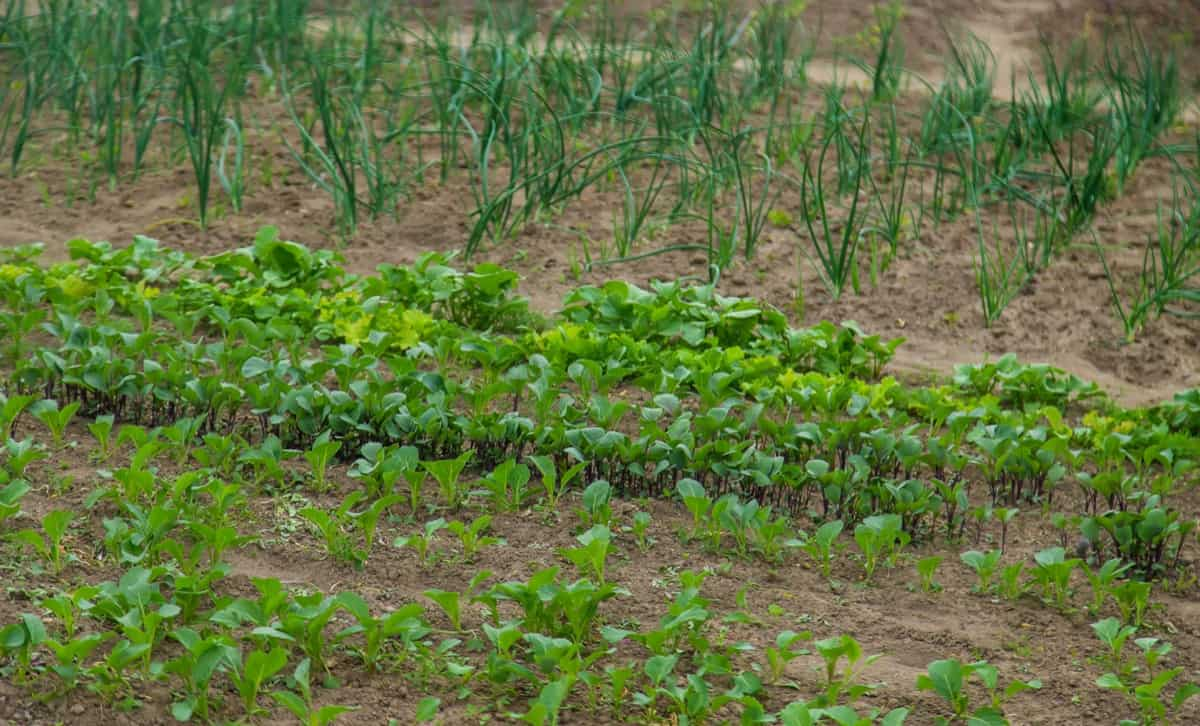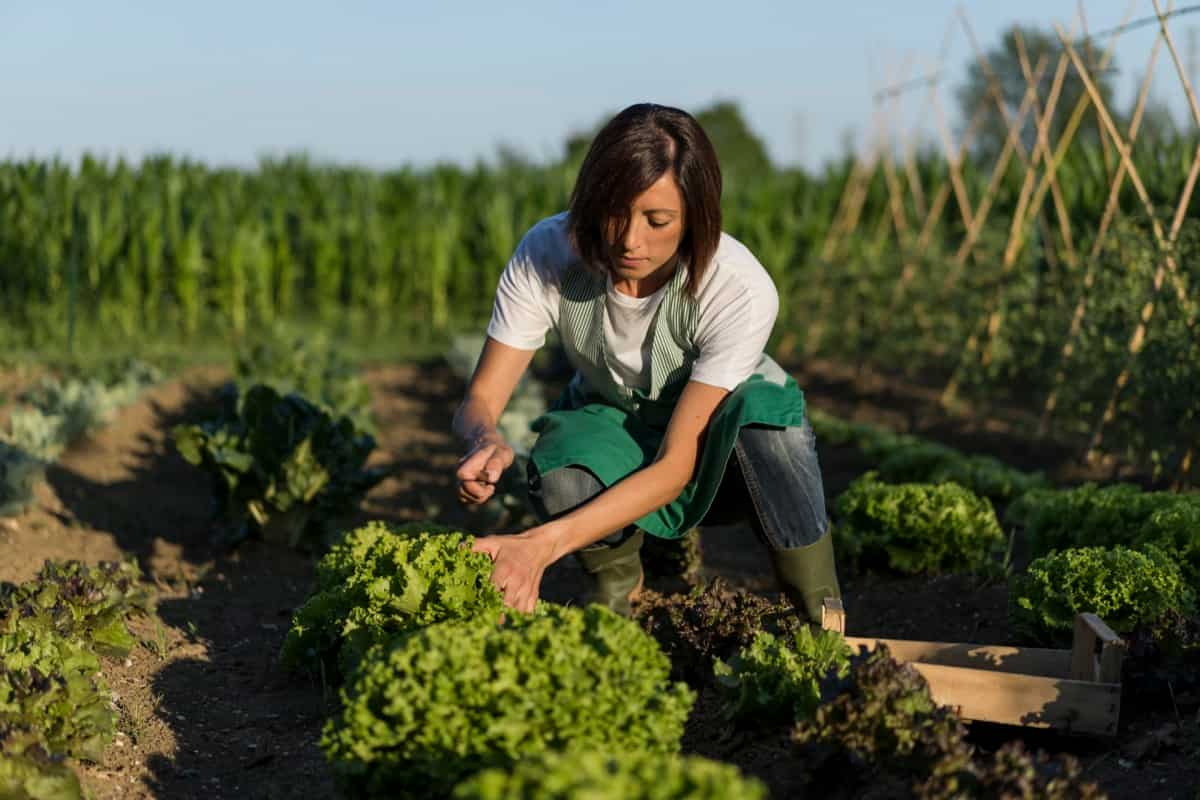New Hampshire, with its beautiful landscapes ranging from the White Mountains to the Lakes Region, provides an ever-changing climate that might seem daunting to gardeners. However, the Granite State has a rich farming and vegetable cultivation history. The frequently asked question, “What vegetables can I grow in New Hampshire?” often resonates among new and experienced gardeners alike.

Likewise, understanding the NH planting schedule is crucial, particularly when deciding when to start one’s garden in New Hampshire. This guide aims to provide insights on the best vegetables suitable for different seasons in New Hampshire, highlighting those that are easy to grow, nutrient-dense, and resistant to local diseases.
Best Vegetables to Grow in New Hampshire in Winter
Venturing into the colder months in New Hampshire, especially in regions like Coos and Grafton, requires an understanding of vegetables that can withstand frosty temperatures. Broccoli, Brussels sprouts, and kale are prime candidates for winter planting. These vegetables withstand the chilly weather and become sweeter after a frost. Garlic and onions, sown in late fall, grow roots throughout the winter and shoot up in spring, offering a bountiful harvest by summer.
Top Vegetables for Summer Planting in New Hampshire
As the snow melts away, especially in regions such as Carroll and Sullivan, the NH planting schedule recommends sowing heat-tolerant vegetables. Tomatoes, peppers, and cucumbers thrive during New Hampshire’s summer months. Planting them after the last frost ensures they receive the warmth and long daylight they need. Additionally, beans, zucchini, and corn are top contenders for summer gardens. These vegetables enjoy the heat and enrich the garden with their vibrant colors and flavors.
Ideal Vegetables for Spring Planting in New Hampshire
Spring, a season of rejuvenation, brings forth ample opportunities for gardening in areas like Merrimack and Hillsborough. During this period, lettuce, spinach, and peas are ideal vegetables for planting. Their quick growth allows them to be harvested before the summer heat peaks. Radishes and carrots also favor the moderate temperatures of spring, growing steadily beneath the soil and offering a crunchy, fresh yield in just a few weeks.
Cold-hardy Vegetables for New Hampshire Gardens
New Hampshire’s cold can be intense, especially in regions like Belknap and Strafford. Cold-hardy vegetables such as cabbage, parsnips, and collards are perfect for such conditions. These robust vegetables can tolerate cold snaps and, in some cases, improve in taste with exposure to frost. With its deep-rooted nature, beetroot can also brave the winter cold, providing a sweet and earthy flavor to winter meals.
In case you missed it: Ultimate Guide to New Hampshire Red Chicken Breed: Characteristics, Feed, and Care

Heat-tolerant Vegetables for New Hampshire Summers
In contrast to its icy winters, New Hampshire, particularly in areas like Rockingham and Cheshire, can experience warm summers. Heat-tolerant vegetables like okra, eggplants, and sweet potatoes are commendable choices for such conditions. They withstand the scorching sun and add variety and nutrition to summer meals. Melons and pumpkins, with their sprawling vines, also relish the summer warmth, bearing juicy fruits by the season’s end.
Fast-growing Vegetables for Quick Harvests in New Hampshire
For gardeners keen on quick results, especially in the bustling regions of Nashua or Manchester, there are many fast-growing vegetables to choose from. With its peppery flavor, Arugula can be ready for harvest within a month. Similarly, turnips and Swiss chard offer a speedy yield, ensuring gardeners have fresh produce on their tables quickly.
Disease-resistant Vegetables for New Hampshire Gardens
Given New Hampshire’s varied climate, some vegetables are prone to diseases. Planting disease-resistant varieties like resistant tomatoes, rust-proof beans, or mildew-resistant squash can be beneficial to counter this. Such vegetables ensure a healthy yield and reduce the need for chemical interventions, keeping the produce organic and the garden eco-friendly.
Nutrient-dense Vegetables to Grow in New Hampshire
For those keen on maximizing the nutritional value of their gardens, especially in nutrient-rich regions like the Upper Valley, options abound. Spinach, packed with iron and calcium, is a top choice. Kale, another nutrient powerhouse, is rich in vitamins A, C, and K. Additionally, sweet potatoes, with their beta-carotene content, and beans, abundant in protein, make excellent choices for health-conscious gardeners.
In case you missed it: Hampshire Down Sheep Facts: Origin, Physical Characteristics, Size, Pros, and Cons

Easy-to-grow Vegetables for Beginner Gardeners in New Hampshire
Beginners in vegetable gardening, especially in the Monadnock Region or the Seacoast, often wonder about the easiest vegetables to grow. Radishes, with their rapid growth, are simple and satisfying. Lettuce, spinach, and beans are also beginner-friendly, requiring minimal care yet offering a gratifying harvest. Novice gardeners can quickly experience a lush, green garden by being patient, observant, and attentive.
Additional Tips for Thriving Gardens in New Hampshire
While selecting the right vegetables is essential, a few extra steps can ensure the success of your garden. Firstly, invest in improving your soil. New Hampshire soils, particularly in regions like the Lakes Region or the Dartmouth-Lake Sunapee area, can vary in consistency. Regularly adding compost or organic matter can enhance soil fertility, ensuring robust growth. Secondly, practice crop rotation. This reduces the risk of soil-borne diseases and helps maintain soil nutrition levels. Rotating plants from different families yearly will guarantee a healthier garden in the long run.
Pest-resistant Vegetables for New Hampshire Gardens
Pests can be a gardener’s nightmare, but this challenge can be mitigated with the right vegetable choices, especially in regions like the Lakes Region and the Dartmouth-Lake Sunapee area. Vegetables like leeks, onions, and garlic naturally repel many pests with their pungent aroma. Similarly, bitter gourds and rutabagas are less attractive to common pests, ensuring your garden remains bountiful and minimally damaged. Planting these alongside other crops can also act as a natural deterrent, reducing the need for pesticides and ensuring a healthier harvest.
Vegetables Suitable for Container Gardening in New Hampshire
Container gardening can be a boon for those with limited space or living in urban areas such as Portsmouth or Concord. Vegetables like bell peppers, cherry tomatoes, and dwarf beans adapt well to pots and containers. Herbs like basil, cilantro, and parsley also thrive in smaller spaces. These choices are perfect for balconies, patios, or even indoor gardening. With the right care, even a compact space can yield a surprising amount of fresh, home-grown produce.
In case you missed it: Hampshire Pig Facts: Origin, Size, Physical Characteristics, Pros, and Cons

Conclusion
New Hampshire’s varied climate offers many opportunities for vegetable gardening, from the chilly winters of Coos to the warmer summers of Rockingham. With the right knowledge about the NH planting schedule, an understanding of regional preferences, and a bit of dedication, gardens in the Granite State can thrive. Whether you’re a seasoned gardener or a beginner, the rewards of cultivating your produce, tasting the freshness of home-grown vegetables, and experiencing the joy of gardening in New Hampshire are unparalleled.
- Ultimate Guide to Ossabaw Island Hog: Breeding, Raising, Diet, and Care
- Ultimate Guide to Juliana Pig: Raising Facts, Size, Diet, Care, and Lifespan
- Raising Lleyn Sheep: Disadvantages, Price, Uses, Characteristics, and Care
- Ultimate Guide to Meishan Pig: Breed Facts, Breeding, Raising, and Care
- Ultimate Guide to Teacup Pigs: Raising, Diet, Lifespan, Cost, and Care
- Guide to Raising Poll Dorset Sheep: Facts, Profile, Characteristics, Uses, and Care
- Ultimate Guide to Bighorn Sheep: Characteristics, Diet, Lifespan, Breeding, and Lifecycle
- Ultimate Guide to Raising Katahdin Sheep: Farming Facts, Breed Profile, Uses, and Care
- Ultimate Guide to Raising Oreo Cows: Belted Galloways Farming Facts, Profile, Uses, and Care